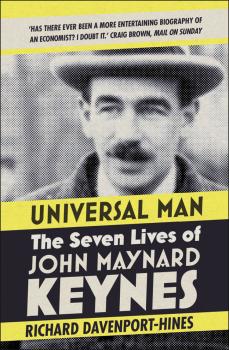Richard Davenport-Hines
Список книг автора Richard Davenport-HinesAn English Affair: Sex, Class and Power in the Age of Profumo
A dazzling reconstruction of the Profumo Affair which brings to life Sixties England and uncovers the shocking truth behind the scandal.Britain in the early 1960s was dominated by the legacy of two world wars. Prime Minister Harold Macmillan, the Edwardian stalwart, led a Conservative government dedicated to tradition, hierarchy and, above all, old-fashioned morality. But the tide was changing. A breakdown of social boundaries saw nightclub hostesses mixing with aristocrats, and middle-class professionals dabbling in criminality. Meanwhile, Cold War paranoia gripped the public imagination.The Profumo Affair was a perfect storm, and when it broke it rocked the Establishment. In ‘An English Affair’, Richard Davenport-Hines, author of the critically acclaimed ‘Titainic Lives’, introduces us to the key players and brings seedily glamorous Swinging London to life. The cast list includes familiar names such as louche society doctor Stephen Ward, good-time girls Christine Keeler and Mandy Rice-Davies, and Secretary for War John Profumo himself. But here for the first time we also encounter the full complement of tabloid hacks, property developers and hangers-on whose roles have, until now, never been fully revealed. As the drama builds to its deadly climax, Davenport-Hines exposes the hypocrisy and prejudice of a country undergoing extraordinary change.Sex, drugs, class, race, chequebook journalism and the criminal underworld – the Profumo Affair had it all. This is the story of how Sixties England cast off respectability and fell in love with scandal.
Universal Man: The Seven Lives of John Maynard Keynes
From the bestselling and award-winning author of ‘An English Affair’, a dazzlingly original thematic biography which throws fresh light on the greatest economist of the twentieth century.John Maynard Keynes saved Britain from financial crisis twice over the course of two World Wars, and instructed Western industrialised states on how to protect themselves from revolutionary unrest, economic instability, high unemployment and social dissolution. In the wake of the recent global financial crisis, economists worldwide have once again turned to his ideas to confront their problems.In this entertaining and edifying new biography, Richard Davenport-Hines introduces the man behind the economics; a connoisseur, intellectual, economist, administrator and statesman who was equally at ease socialising with the Bloomsbury Group as he was when influencing the policies of Presidents.By exploring the desires and experiences that made Keynes think as he did, or compelled him to innovate, Davenport-Hines reveals the aesthetic basis of Keynesian economics, and explores why this Great Briton’s ideas continue to instruct and encourage us seventy years after his death.
Enemies Within: Communists, the Cambridge Spies and the Making of Modern Britain
What pushed Blunt, Burgess, Cairncross, Maclean and Philby into Soviet hands?With access to recently released papers and other neglected documents, this sharp analysis of the intelligence world examines how and why these men and others betrayed their country and what this cost Britain and its allies.Enemies Within is a new history of the influence of Moscow on Britain told through the stories of those who chose to spy for the Soviet Union. It also challenges entrenched assumptions about abused trust, corruption and Establishment cover-ups that began with the Cambridge Five and the disappearance of Guy Burgess and Donald Maclean on the night boat to Saint-Malo in 1951.In a book that is as intellectually thrilling as it is entertaining and illuminating, Richard Davenport-Hines traces the bonds between individuals, networks and organisations over generations to offer a study of character, both individual and institutional. At its core lie the operative traits of boarding schools, the universities of Oxford and Cambridge, the Intelligence Division, Foreign Office, MI5, MI6 and Moscow Centre.Davenport-Hines tells many stories of espionage, counter-espionage and treachery. With its vast scope, ambition and scholarship, Enemies Within charts how the undermining of authority, the rejection of expertise and the suspicion of educational advantages began, and how these have transformed the social and political temper of modern Britain.



